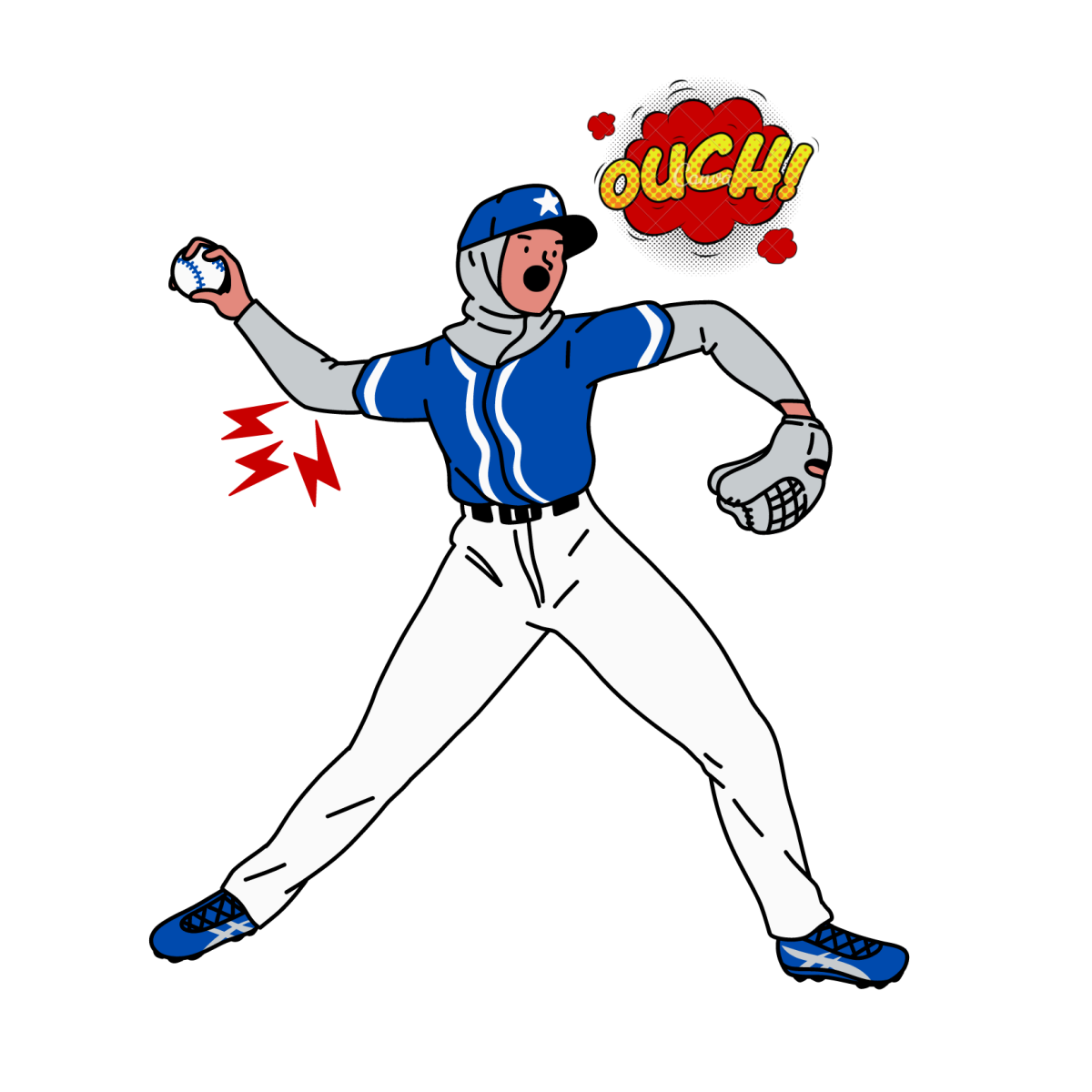In the opening weeks of this year’s Major League Baseball season, there has been a litany of injuries picked up by several pitchers around the league.
Last season, the MLB added a pitch clock to the game as an attempt to speed up the pace of play. As a result, pitchers are allowed less time in between pitches than before, causing more physical strain and making the game more taxing.
This season, the league edited the functionality of the pitch clock to speed up the game even more. League owners voted to start the pitch clock when the pitcher receives the ball back rather than when they stepped foot on the mound again. This change has made pitchers unable to delay the start of the clock and seemingly defenseless against pitching the ball quickly.
Not only did the league change rules about the process of the clock, but they also reduced the time allotted each cycle. With runners on base, the pitch clock will start at 18 seconds, compared to 20 seconds last season.
“I like the addition of the pitch clock because it does make the game more fast-paced and more fun to watch,” said Jackson Kiser, a junior marketing major. “I also think that adding a stamina element to baseball is really cool because normally, when you think of baseball, it’s very slow and a lot of time in-between plays.”
The list of pitchers who have picked up injuries within a couple weeks of the season starting includes Framber Valdez, Spencer Strider, Jonathan Loaisiga, Nick Pivetta, Eury Perez and Shane Bieber. Some of these pitchers were told they would miss significant time and that their situation would require surgery. There are an additional 15 pitchers that either got injured last season or in spring training, with many others having other injuries.
Strider, a heavy impact player for the Atlanta Braves, was one of the players that required surgery. While Strider did not have to have Tommy John surgery, like many others, his injury was caused by a bone fragment being lodged in his ulnar collateral ligament. Unlike other pitchers around the league, his injury was not caused by high-velocity repetitions at high frequency but rather the unavoidable development of a bone fragment.
“I’m really happy that Strider will only undergo a minor surgery as opposed to Tommy John,” said John Nagy, a senior mass communication major. “He will come back stronger and continue to be a pivotal player for our team in this era of Atlanta having an extremely strong roster.”
The Cleveland Guardians’ ace, Bieber, was not as lucky as Strider, however. Like Strider, Bieber will also miss the remainder of this season — but due to having to undergo Tommy John surgery.
Bieber was off to a hot start this season, boasting a 2-0 record while only allowing 10 hits over 12 innings and giving up zero runs.
“Bieber’s injury sucks,” said Ryan Collins, a sophomore mass communication major and Guardians fan. “Both of my favorite pitchers are done for the season, which makes me kind of sad. I’m not a huge fan of the pitch clock. I don’t think baseball needs to be faster, and the game should be rooted in tradition like it always has been.”
Regardless of fans’ opinions on the pitch clock, with all of these injuries, being a pitcher in the MLB seems to have become a more strenuous position since its addition.


